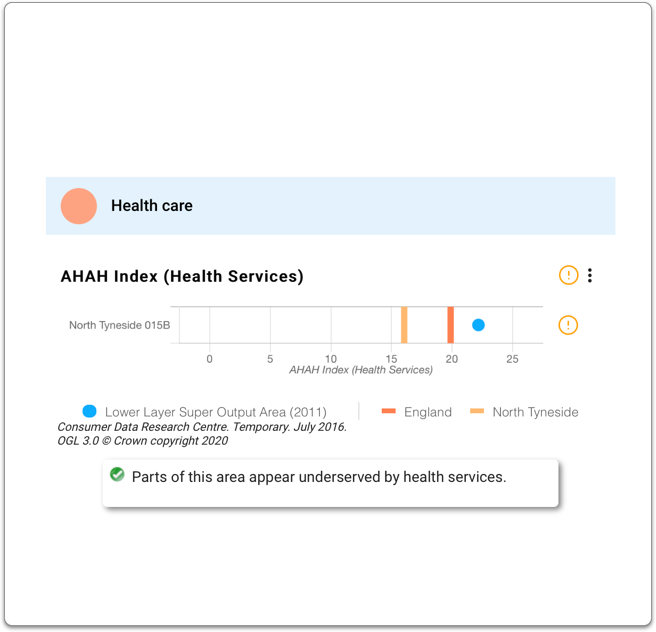Aligned with a renewed emphasis on regeneration, this article delves into Homes England funding strategy and its evolving approach centred on community engagement and locally-relevant social value. Departing from its previous singular focus on house building finance, the article discusses the implications for project delivery and offers insights into the future landscape of applying for Homes England funding.
Homes England funding shifts towards place-based impact
Homes England’s shift in focus is evident in its recently released Strategic Plan 2023 to 2028, unveiled in May 2023. According to Harry Swales, Chief Investment Officer, the focus is on building ambitious partnerships and fostering ‘the creation, regeneration, development and continued wellbeing of communities in England’.
Homes England Strategic Plan 2023 - 2028 states:
“The government’s Levelling Up White Paper makes a clear and compelling case to work with places in a more joined-up way – to tackle housing and regeneration problems head on. And this is what we plan to do. It is now time to return to our roots and for the Agency to fulfil its role as set out in the 2008 Housing & Regeneration Act under which we were established.”
The organisation has established 18 new Key Performance Indicators. Unlike the previous KPIs which focused primarily on market outcomes (such as completions and the share of affordable homes), the fresh set of KPIs now encompasses measures for regeneration, social value generation, and quality:
- KPI 1: Brownfield land reclaimed
- KPI 5: Social value per £ invested.
- KPI 12: Share of supported schemes that meet or exceed agreed standards for design quality
Homes England is currently refining implementation details, with plans to release further information on its updated delivery methodology in the coming months. According to comments in Building magazine, Swales mentioned that Homes England intends to publish a 'statement of intent' on design quality and sustainability within the next six months, outlining the framework and guidance for its integration into processes.
Transparent community engagement
In the realm of community engagement, as per emerging guidance, Homes England aims to implement an open and transparent approach when interacting with local communities in supported developments.

To ensure widespread access, partners should explore ways to facilitate broad-based involvement in projects. This may involve methods like Planning for Real, conducting asset appraisals of the local area at the baseline stage, followed by engaging design-focused consultations during the proposal stage. Leveraging advancements in interactivity is crucial for effective consultations, preventing survey fatigue, and eliciting valuable feedback on designs.
For first-time visitors to this blog, online engagement formats, facilitated by digital platforms like PlaceChangers interactive planning consultation tool, empower users to conduct interactive proposal consultations with masterplan layouts and models. This approach facilitates design-focused feedback on specific proposal aspects, making it an exceptionally suitable method for Homes England's fresh strategic focus.
Locally relevant social value and impact to maximise Homes England funding
Homes England’s approach now also looks for locally relevant social value, so as to align the outcomes from projects as much as possible to beneficial changes that impact nearby residents. Naturally, what those impacts should mean is that community engagement around those is a prerequisite and it should be combined with the use of locally-relevant data.

With time, Homes England has committed to developing a framework of Place-based Indicators, with which locally relevant social value can be captured.
This means that Homes England funding will try to move beyond economic impact values, and enhance them with social value. For this, Homes England is supporting a research programme to evidence how housing-led placemaking efforts unlock regeneration benefits of 0 to 3% of the value of existing housing near their investment sites.
While the conclusive list of Place-Based Indicators that Homes England plans to apply is pending publication, we anticipated that it will encompass enhancements such as improved skills and training opportunities, decreased local long-term unemployment, advancements in health outcomes, and improvements in the local urban fabric, including landscape enhancements.
Implications for delivery partners drawing on Homes England funding
Homes England's shifted focus carries significant implications for partners, as it intensifies efforts to measure the tangible social value produced by financially and logistically supported projects. House builders seeking financial support must recognise the emphasis on development quality and social impact, embedded in developer agreements where funding hinges on achieving specified outcomes.
This shift also impacts Homes England's network of consultancy partners under its DART (Development and Regeneration and Technical Services Framework) framework. Together, they will implement a methodology utilising place-data, engagement, and impact capture to craft locally significant narratives. These narratives aim to enhance local perspectives on development, planning, design, and investment opportunities.
Organizations involved with Homes England, whether as house builders seeking financial support or consultancy partners under the DART framework, can proactively prepare for these changes. This involves cultivating a deep understanding of the evolving criteria for development quality and social impact. Collaborating closely with Homes England during the early stages of project planning will be crucial. Integrating data-driven insights and robust engagement strategies into their methodologies will enable these organizations to effectively contribute to the generation of locally important narratives. By aligning their approaches with Homes England's renewed focus, they can not only meet the criteria for funding but also play a pivotal role in fostering positive community attitudes towards development, planning, design, and investment opportunities
Looking ahead
Homes England funding and renewed strategic approach demonstrates foresight, leveraging substantial financial strength to align housing projects with local needs. This positions the organization for strong local support, poised to make a positive impact on communities nationwide.
As the new process unfolds, a comprehensive baseline needs assessment within agreed impact areas, driven by locally-relevant data, will be essential. This groundwork will inform engaged and transparent community interactions, both offline and online, connecting with relevant impact areas. However, the article notes the current uncertainty around Homes England's commitment to a structured impact assessment post-completion, a desirable but often challenging practice in reality.
Digital platforms like PlaceChangers play a pivotal role for delivery partners in streamlining needs assessments through place-based data. By facilitating interactive planning consultations using various layouts, these platforms significantly enhance the community's ability to provide valuable feedback online. This approach fosters a more inclusive and participatory environment, ensuring that diverse perspectives contribute to the planning process
